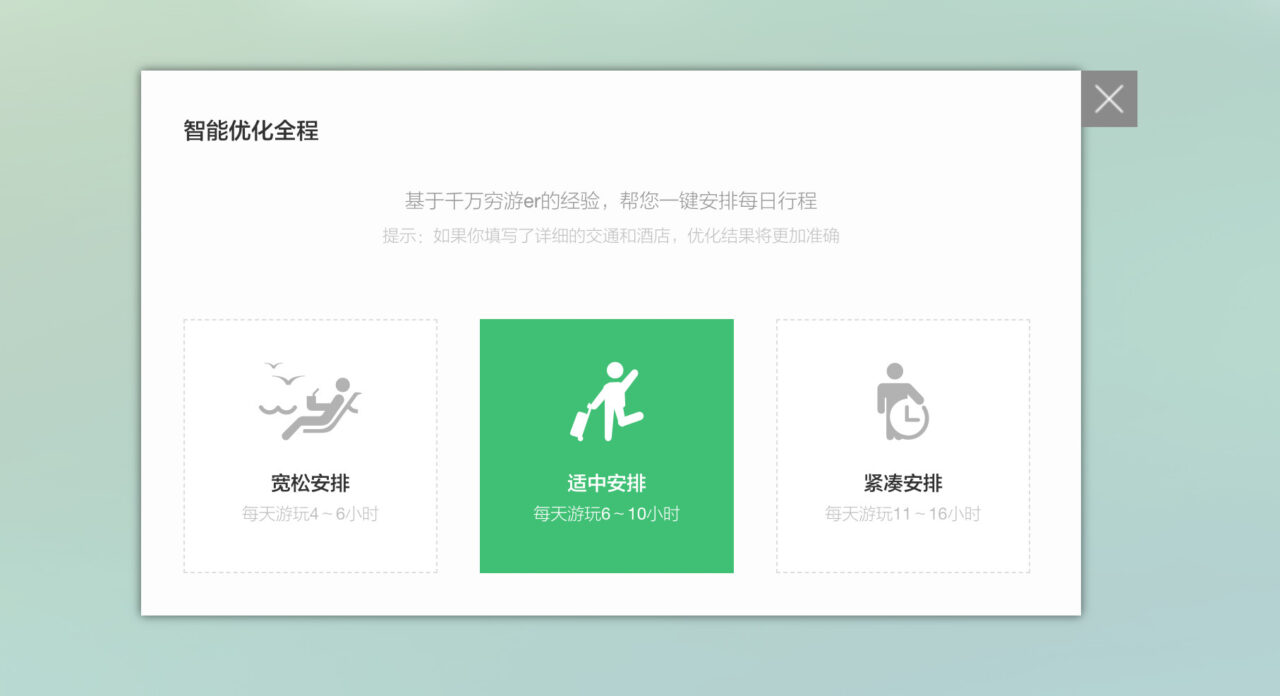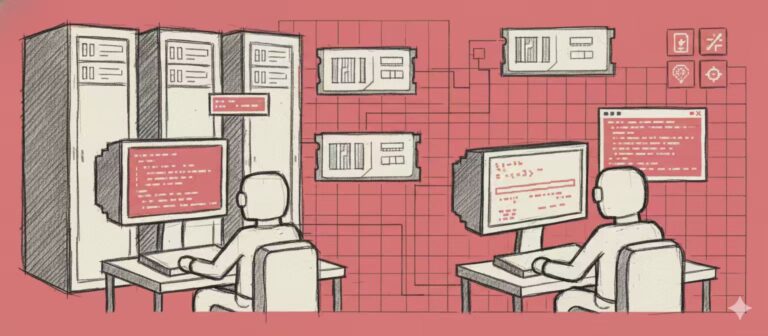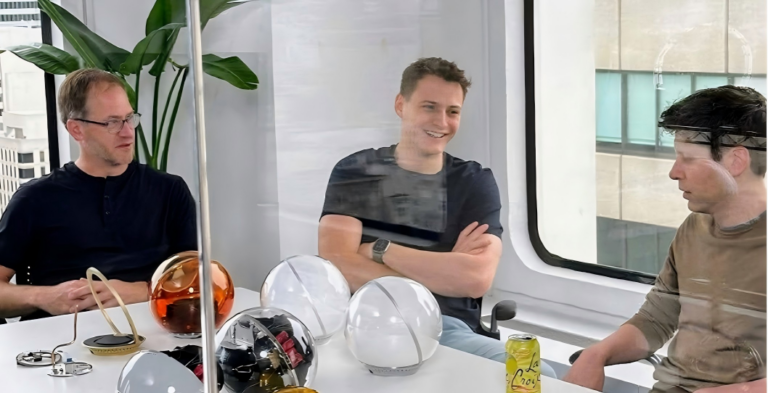Command Palette
Search for a command to run...
My National Day Holiday Trip Was Completely Controlled by Artificial intelligence.

For most people, traveling is about making the most appropriate choice in terms of time and money.
But after reviewing my trip during the National Day holiday, I found that I was controlled by AI from choosing the destination, making travel plans, booking air tickets and hotels, etc., and I was not angry at all.
Because AI really understands me.
Plan for AI
First of all, when it comes to choosing this destination, I was manipulated by TikTok and travel apps.
Tik Tok’s push notifications probably guessed what I was thinking, as it has been pushing various island videos to me since August.
Whether it is Sanya or Hawaii, as long as it is a wide-angle shot by a drone, with a filter applied, it will look good no matter what, and paired with a song by Pu Shu, "I have crossed mountains and seas, and also walked through crowds of people."
I was completely brainwashed and made a quick decision to go to the island during the National Day holiday to show off my style, check out the most popular attractions on TikTok, and cross the mountains and seas myself.
When I was preparing to book a flight, as soon as I opened Fliggy, an international flight voucher popped up, followed by a whole screen of free travel gift packages. Under the "Guess You Like" column of the free travel destination, the keyword "same attractions as TikTok" was introduced.
After booking the flight tickets, I opened the itinerary assistant of Qyer.com and entered my approximate plan, such as how many days I would stay in each place. It then recommended hotels to me based on my spending level, and then based on my daily starting and ending points, it sorted out my daily itinerary plans.
Great! I feel so relieved.

I know very well that when dealing with daily events, humans tend to choose the best option for each step, such as the cheapest, the closest distance, or the most suitable time. However, for continuous events such as travel, even if the best option is chosen for each step, it cannot ensure the global optimal solution.
In the computer field, this optimal solution is called a greedy algorithm.
In an era of information explosion, the complexity of making a perfect travel plan has exceeded the processing range of the human brain. But this is exactly what AI is good at, formulating reasonable plans based on massive amounts of data and user habits.
There are also many companies using AI to realize intelligent travel planning for tourists, not just Qyer.com.
For example, WayBlazer is such a company. They also use Watson's natural language and cognitive search technology, and use AI equipped with supercomputing systems to develop personalized vacation plans for users.

WayBlazer can directly consult information on attractions, activities, transportation, etc. in multiple languages, and then combine it with the big data system for analysis to finally output the best results.
Moreover, as more and more people use tools like WayBlazer, it will help the system output more accurate solutions through learning.
Hotels are handed over to AI
If you are not satisfied with the hotels recommended by Qyer, or feel that Airbnb is of varying quality, and want to get a better travel experience, especially in terms of accommodation, you can also give the initiative to AI.
When I was booking a hotel, I found that Zumata, a travel company headquartered in Singapore, has been recommending highly personalized hotels to tourists through IBM's AI platform Watson cognitive system.
For example, you want to book a luxury hotel suite in Sydney with a direct view of the Sydney Opera House, an indoor swimming pool and free Wi-Fi.
You just need to enter the requirement "The room should have a view of the Sydney Opera House, swimming pool, free internet access", and the system will automatically recognize it and provide you with a list of corresponding hotels, as well as introductions to these hotels, user reviews on various social platforms and other information.
In addition, if you frequently use Zumata to book hotels, it can make recommendations directly based on historical information.

This is really good news for those who suffer from decision-making difficulties.
Currently, Zumata's services cover almost the entire world, with as many as 550,000 hotels connected to the system, and providing hotel descriptions, reviews and other text information in more than 29 languages.
In addition, Zumata also provides intelligent agent assistance services. If you encounter any problems when you are out, such as not being able to get a taxi, lost luggage, or unable to find the way home, you can send a help message on the platform in a language you are familiar with. The intelligent agent can respond in real time and provide you with solutions.
In addition, Zumata can also develop a good personalized travel plan for consumers through AI cognition (such as conversation, search, sorting, and image recognition functions).
Let AI take care of your meals
There is a travel mantra: “Since you are here, how can you go out for fun without feasting on local delicacies?
Nowadays, when traveling, there is no longer the opportunity to walk the streets to look for delicious food. Just open Dianping.com and you can easily find information about all the stores.

However, if you want to get a better dining experience, relying solely on traditional recommendation algorithms will often only yield restaurants and food that suit the tastes of the general public or that have a large number of consumers. And because of many commercial interests, many restaurants are more likely to be seen by users with just a little promotional resources.
In this case, I am also looking for ways to clear the fog of advertising and find restaurants that better suit my taste.
I found out in the news in April this year that a research team from the Chinese University of Hong Kong has developed an AI system for food recommendation called INCOMIRS, but it is currently only used in the catering industry in Hong Kong. Although I can't use it for the time being, the idea of this business model is still worth referring to.
It can accurately calculate the order of recommendations based on a wide variety of local food information and the dining experience of close friends. The results given by this system are closer to user preferences and needs, while also eliminating pseudo-food reviews with promotional elements.
This AI system integrates cross-platform data mining, translation systems, and applications. Of course, in order to make more accurate recommendations, it requires the access of some of the user's social accounts.
Trust your life to AI
The most important part of traveling is taking a plane!
It is possible that AI will completely take over in the future, and most of today's passenger aircraft can be said to be semi-automated. Except for take-off and landing, which require pilot operation, the time in the air can be automatically driven.
Boeing, a world-renowned civil aircraft manufacturer, is one of the many supporters of unmanned passenger aircraft. Last year, they announced that they would conduct unmanned passenger aircraft tests this year.

Some time ago they achieved autonomous flight of a load-carrying drone, but there has been no major breakthrough regarding Boeing's unmanned passenger aircraft.
Although riding in a drone airliner may sound a little scary, the intelligent computer systems currently being prepared for drone airliners are assisting pilots in making decisions. They can calculate the best flight parameters and even help pilots fly and land in bad weather and low visibility conditions.
Therefore, from the perspective of current technology, compared with developing unmanned passenger aircraft, developing a more intelligent auxiliary system is more cost-effective. When faced with some special situations, the intelligent system can help pilots find the best solution through powerful data processing capabilities.
AI has spoiled me and controlled me
The navigation system took me to where I needed to go, the smart voice guide explained each attraction to me, and the personalized recommendations of various apps arranged everything for me in advance. Throughout the entire trip, I barely had to think about anything other than tapping the screen, walking, picking up food, and taking out my wallet.
If Xu Xiake and Marco Polo knew that travel nowadays is so smart and fast, and tourists are so free and easy, they would be furious.
On the way back, I was thinking about the meaning of travel, and whether relying so much on AI is what travel should be like.
This question is too complicated and I can’t figure it out at all. I’d better ask Siri.




